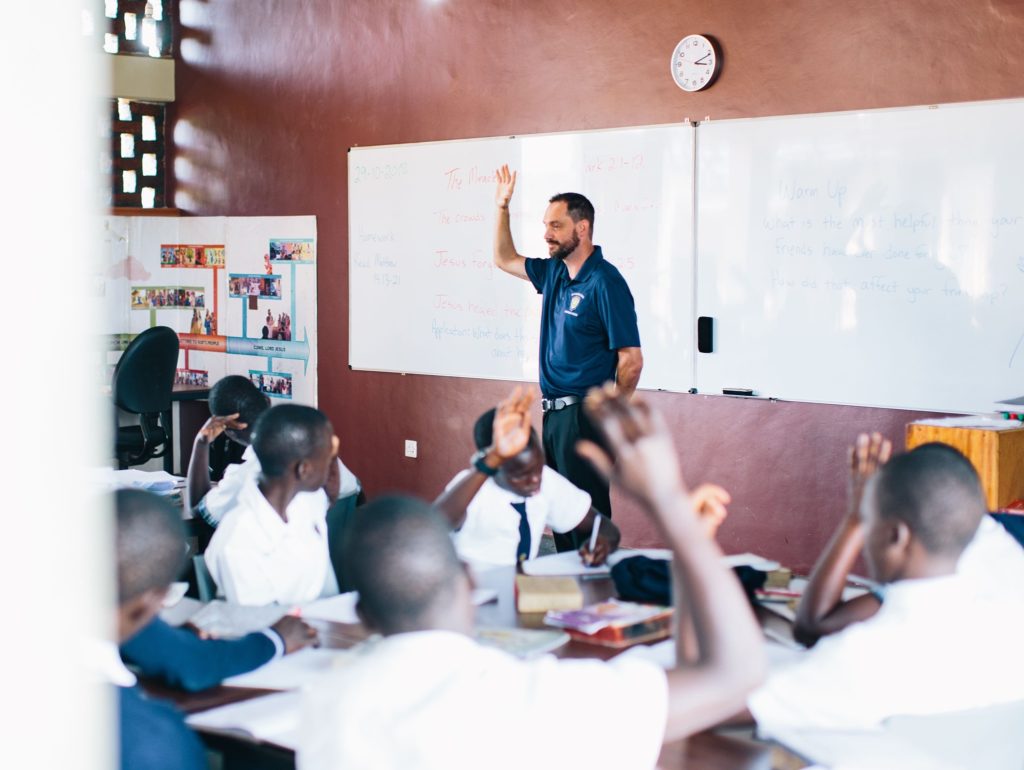FRANKLIN, TN – The Amazima story began with an 18-year-old girl, Katie Davis, falling in love. It happened in Uganda while she was on a mission trip to Africa. She fell in love with the people of Uganda.
The Story

Katie responded to that love by returning less than a year later. During 2007 and 2008, she founded Amazima Ministries, began a child sponsorship program that supported 40 Ugandan students, and started a blog called “Kisses from Katie.”
Katie has called Uganda her home ever since. During the ensuing decade, in addition to overseeing the development and growth of Amazima, she also published two New York Times bestsellers, Kisses from Katie, derived from her blog, and Daring to Hope.
By 2011, the sponsorship program had expanded to include 393 students. By 2016, a total of 600 children were being sponsored. As of 2020, about 800 students are sponsored and receiving “an exceptional Christ-centered, classical education from a Ugandan perspective.
The school is located on 70 acres near Jinja, Uganda, just a couple of miles west of the Nile River. It is the center of the Amazima Ministries, but it is only a part. In just a few years, Amazima has established a self-sustaining vocational program for women in the Jinja community and a medical outreach program that includes hygiene education, malaria prevention, and HIV testing. Farming God’s Way is the Amazima agricultural program that teaches productivity, sustainability, and profitability for local farmers.
The School
The Amazima School “exists to equip Ugandan students with the tools of learning to enable them to live fully for the glory of God.” Every teacher at every grade level at the school “focuses on excellent academics, critical thinking, servant leadership, nurturing relationships, and a Christian worldview.”
The students are excelling, and the ministry is growing as the Lord has blessed the leadership and teachers with a distinctively clear philosophy of education that can be best described by these excerpts from the Amazima website.
“At The Amazima School, education is the cultivation of wisdom and virtue by nourishing the soul on Truth, Goodness, and Beauty so that in Christ a student is better able to know, glorify, and enjoy God.
“The revealed truth of Scripture is the standard, or norm, against which all knowledge is measured. The student grows in the knowledge of God by studying His work in nature (science and mathematics), His will for Humanity in history and great literature, and His personal attributes in theology.
“The student has physical, intellectual, and spiritual needs which education prepares him to address. The teacher models to the student the process of physical, intellectual, and spiritual maturing. The educational process relates the teacher’s maturity to the student’s needs. This creates an opportunity for a deepening and growing relationship between the teacher and the student.
“The structure of Christian education is such that the skills required for success in the school are identical to the tools necessary to enjoy a lifetime of learning. Education is not a product to be purchased or consumed, but a life to be lived. It is never a completed transaction. It is the ongoing conversation of many ages.”
An Amazima education is built on three supporting philosophical pillars.
- Content. The acquisition of organized knowledge is taught through lecture and reading, then assessed through quantitative tests and examinations.
- Ideas. The form for virtuous human conversation is taught through great discussions and writing, then assessed as they are embodied in the learner’s life.
- Skills. The tools needed for learning are acquired through the interaction with excellent models and assigned practice, and then assessed by correct practice, performance, and application.
Students are led by teachers who model God’s grace, respect the authority of God’s Word, the nature of the subject, and the nature of the student who is made in God’s image.
A 3-minute look at a day in the life of a student at the Amazima School
The Score
There is an old athletic axiom that says, “You can’t tell who’s winning if you don’t keep score.” Here are a few Amazima “scores.”
2019
- 88 graduates
- 40 service projects led by students
- 192 Ugandans employed
- 22 students baptized
- 1,116 vaccinations administered
The past decade
- Over 800 students impacted
- Over 1,200 families impacted
- 711 farmers mentored
- 350% increase in crop harvest through Farm Training
- 2 million meals served
- 17,500 people treated medically
The Superlative
Your opinion may differ, but to me, the most outstanding impact of Amazima in Uganda is a fact many might overlook. It is included in the ministry’s timeline on their website.
In 2017, 23 of the construction workers were baptized in the name of Jesus Christ because of the witness and testimony of Amazima staff during the campus-wide daily devotionals.
Praise God from Whom all blessings flow!
Learn more about Amazima, including what “Amazima” means and the story of Katie Davis Majors, her husband, and their 15 children, by visiting the Amazima website.
Read more news on Uganda and World Missions on Missions Box.
Source: Amazima, Official Website





Very encouraging and touching on the transformation of lives in communities for a Godly purpose.